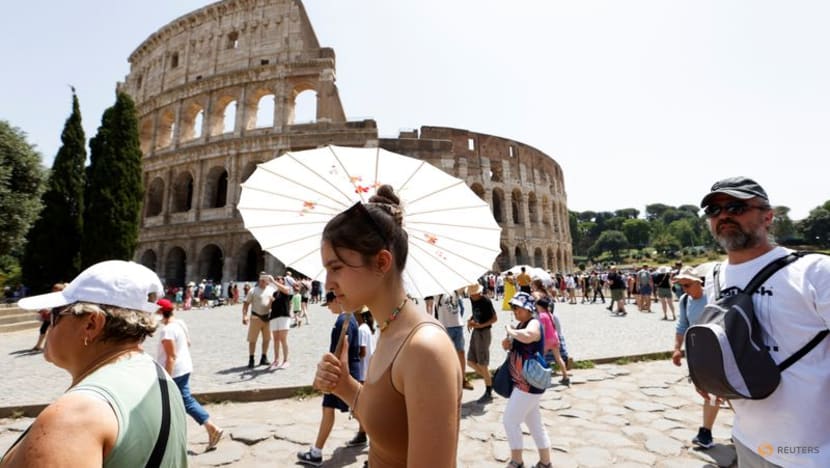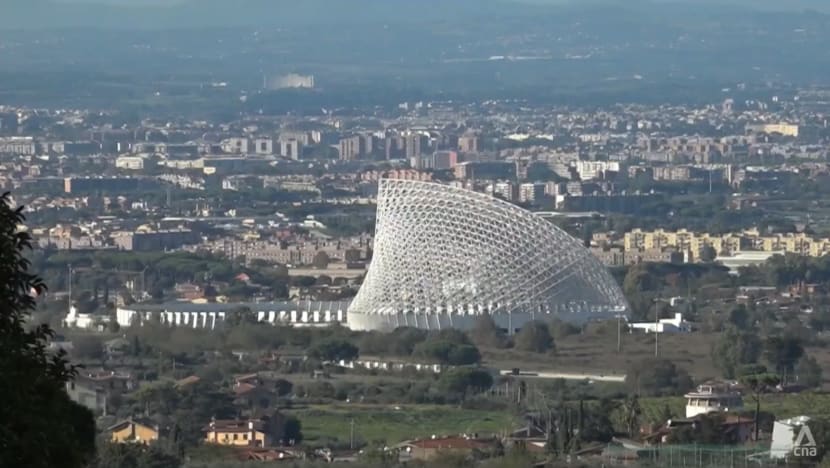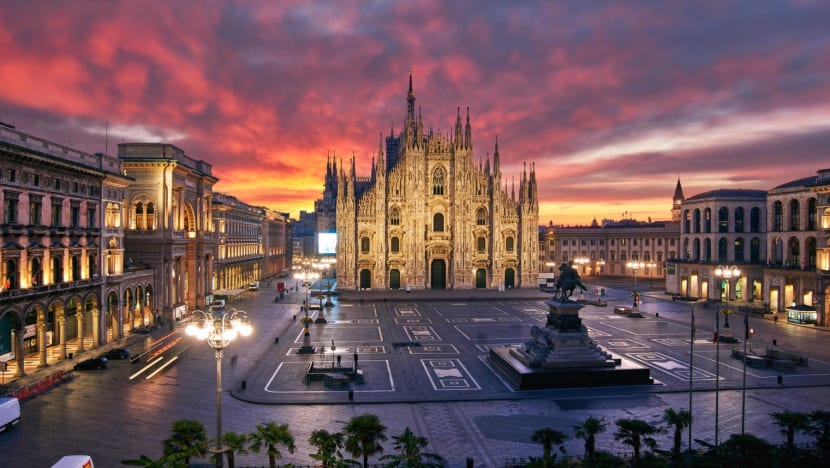Rome bids to host World Expo 2030 with focus on reinvention, securing lasting legacy for local communities
Held once every five years, World Expos bring together countries, along with private firms, civil society groups and non-governmental organisations, to discuss and find solutions to pressing global challenges.


This audio is generated by an AI tool.
ROME: Italy will find out on Tuesday (Nov 28) if its capital Rome wins the race to host the World Expo in 2030.
Held once every five years, World Expos bring together countries, private firms, civil society groups and non-governmental organisations to discuss and find solutions to pressing global challenges.
Rome is up against fellow finalists South Korea’s Busan and Saudi Arabia’s Riyadh.
Officially known as the International Registered Exhibitions, the first World Expo took place in London in 1851.
The most recent edition was held in the United Arab Emirates’ most populous city Dubai from October 2021 to March last year, drawing over 24 million visitors. The city of Osaka in Japan will host the next one between April and October 2025.
The member states of the Bureau International des Expositions (BIE), which oversees the event, will gather and vote for the 2030 host at its 173rd General Assembly on Tuesday.
RETURN ON INVESTMENT
Rome is touting its identity as a capital of art, culture, dialogue and creativity, and the embodiment of constant regeneration and reinvention.
Its proposed slogan for its 2030 bid is “People and Territories: Regeneration, Inclusion and Innovation”.
Expo 2030 Roma technical director Matteo Gatto told CNA: “Today, we have more than 50 per cent of the total population of the world living in cities, and in 2030 it could be more than 70 per cent (or) maybe 75 per cent of the global population living in cities. So the theme of how to regenerate cities is really important.”
The Tor Vergata neighbourhood in the southeast of Rome is where much of the World Expo would take place if the bid is successful.

It is the site of one of the capital's university campuses, a large hospital complex, and a residential area.
“Choosing Tor Vergata is … an opportunity to show in a real, physical way, a new way to design a part of the city,” said Mr Gatto.
Locals are aware of the risk of building infrastructure that becomes redundant after the event ends.
Tor Vergata is already home to one white elephant – a stadium that was built for the swimming competition of the World Aquatics Championships in 2009, but was not finished on time. It has been left empty ever since.
However, if Rome does get selected to host the World Expo, the city will get a nearly 10-fold return on its investment of more than US$6 billion, according to the local government.
Tor Vergata will benefit from new projects, such as a new metro service connecting it to the city centre and a solar park that the community can utilise even after the event concludes.
LASTING LEGACY
Professor Giovanni Caudo from Roma Tre University’s Department of Architecture emphasised the need to question the legacy that such a major event brings to the city, such as what the locals stand to gain after the expo is over.

“So the theme is precisely this: Not to measure how much the city serves the event and then exploit the city for the event, but rather the opposite,” he said.
“To what extent does the city’s project improve (and) adapt the strategic vision that we have of the city, (and) how can an event contribute to achieving it?”
Italy is no stranger to the World Expo. Milan, in the north of the country, hosted the World Expo in 2015.
The old event site has now been turned into the Milano Innovation District (MIND), a hub for tech startups and research.
Creating a similarly tangible legacy like the one in Italy’s second-most populous city, is the top priority for cash-strapped cities bidding to host major global events like the World Expo.
Rome’s main rival, the Saudi Arabian capital of Riyadh, is pumping US$8 billion into its bid, with the theme “The Era of Change: Together for a Foresighted Tomorrow”.
The bid by the third candidate, Busan in South Korea, is themed “Transforming Our World, Navigating Toward a Better Future”.
However, the South Korean city is believed to be lagging behind the other two contenders, as neighbouring Japan is already hosting the 2025 edition in Osaka.














